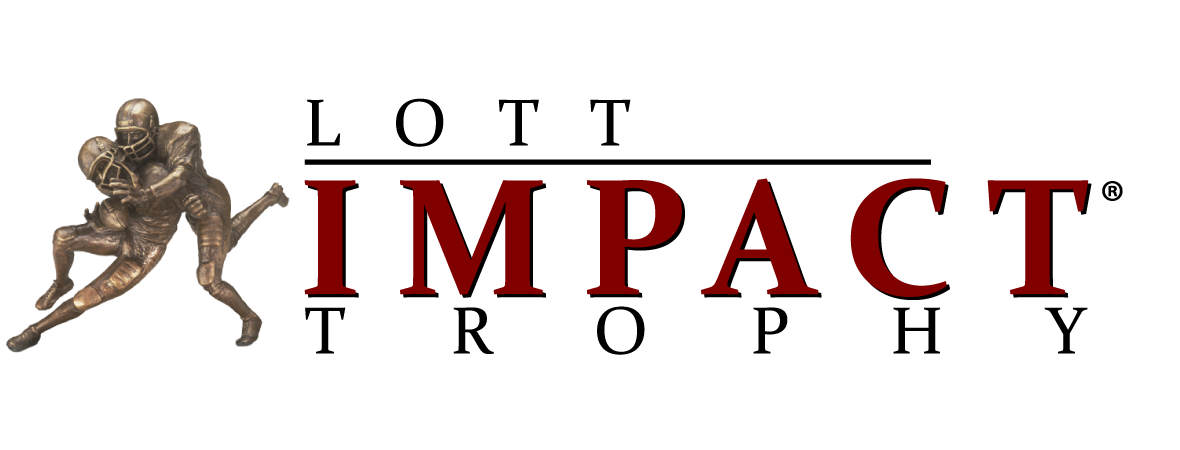3.9K
The Challenge Before Us
by Pete Donovan, The Lott IMPACT Trophy
All sports face daunting challenges to re-start their seasons, none more difficult than college football.
Unlike professional sports, colleges rely on student-athletes to fill their rosters. And there is no known logic that works out for being a student if there is no college.
Deduction: How do you have a football team if there are no students on campus?
It is looking more and more likely that if colleges resume classes in the fall, they will mostly be on-line. So, for openers, how does this effect enrollment. After all, students attend universities like USC or UCLA for the college experience, socializing with other students, meeting in the quad, and, yes, attending sporting events.
Sure students can still go to games if they are only studying on-line – last year’s Heisman Trophy winner Joe Burrow of LSU took all his classes on-line and still had time to lead the Tigers’ football team to an undefeated, national-championship season.
One thing seems imminent – large classrooms and multiple students living in one dorm are likely off the board for 2020.
(Long term, multi-million-dollar contracts for coaches will be a thing of the past as will multi-million-dollar athletic facilities.)
But then the next question arises. How many students will pack the stadiums on Saturdays? Talk about large gatherings.
This will be a huge revenue loss. Clemson, favored to win the national championship if this season is played, gets nearly $31 million of its $128 million athletic budget from tickets sales, mainly from football.
Clemson’s total football revenue, which includes television and booster donations, was at $77 million last year. But that was still only the 25th highest revenue among college football programs. Texas and Texas A&M dwarf Clemson and most other programs with a three-year average revenue of $147 million a year.
College football players cannot be paid (yet), but they have more luxuries than most Fortune 500 CEO’s. Clemson’s 145,000 square foot “locker room” has a basketball court, a mini golf course, a whiffle ball field, bowling alley and arcades. Oregon’s ultra-fancy facility includes Ferrari leather chairs, Indian rugs, self-cleaning lockers and a barber shop!
The NFL, on the other hand can play just about anywhere – as long as the games are televised. They could line up on a golf course and play as long as the ESPN crew was on hand!
All sports are going to have to get used to the new normal – which might be playing with no fans in the stands or, in many cases, fewer fans, for sure.
Colleges will look at abandoning non-conference games, which makes sense in many instances except in those games that would come with big paychecks.
USC, for instance, is scheduled to open the season Sept. 5 in the massive AT&T Stadium in Arlington, Texas. The opponent will be Alabama and the pay day is expected to be $6 million per team!
The following week, USC is to play New Mexico, a 2-10 team a year ago, in the Coliseum. A guaranteed win, but the Trojans will have to shell out upwards of $1 million* to bring the visitors.
*This is common practice. Power conference schools are usually willing to pay a financial premium for some schools to “sacrifice” a game (i.e. a loss).
USC coaches and administers have shaved a million dollars total off their pay. Kansas coaches have taken a 10% pay cut, but that is only a drop in the bucket.
College coaches are extremely well compensated. Thirty head coaches make at least $4 million a yar with superstar coaches Dabo Swinney of Clemson ($9.3 million) and Nick Saban of Alabama ($8.8 million) topping the list. Of course they head two of the powerhouses in college football. But how about UCLA’s Chip Kelly who will make $4.3 million in 2020, following two horrible seasons (3-9, 4-8) as the Bruns coach?
Assistant coaches are making as much as $2.5 million a year – Dave Aranda, LSU Defensive Coordinator.
The issues facing college football are both long and complex. When the game does return, we should all wildly embrace it, whatever form it takes!

